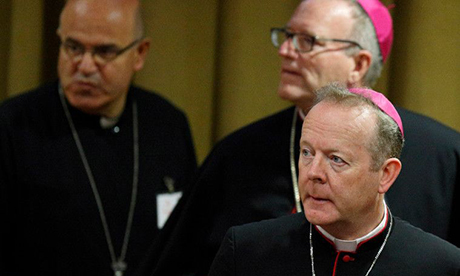Ireland’s Catholic bishops plan to hold a synod to hear from people who were raised Catholic but have walked away from the church.
The synod will take place “within the next five years”.
The bishops said they are “acutely aware of the huge challenges to the Catholic faith” that have emerged during the past 50 years, including the rapid transformation and secularization of society, leading to fewer people practicing the faith and a decline in religious vocations.
Since his election in 2013, Pope Francis has said he wanted to breathe fresh life into the concept of synodality articulated at the Second Vatican Council in the 1960s.
In the Irish context, the process is expected to lead to a national gathering of laypeople, priests, bishops and religious women and men to chart a new pastoral program for the church’s future.
The church leaders acknowledged that “we hear a cry for transparency, greater participation and accountability in the church.”
The process also will especially include the voices of women, the bishops said.
“While many women are very engaged in church life in Ireland, we acknowledge the critical need to honour the contribution of women, to hear their deep concerns, to formally recognise their roles and articulate new models of co-responsibility and leadership involving all laypeople — women and men.”
They admitted that, like so many others, they have been “appalled” by the findings published reports into institutional and clerical abuse.
“The recent shocking revelations about mother and baby homes in Ireland – north and south – have further reminded us of the deep trauma felt by so many in the Body of Christ and the need for inner healing and hope.”
The bishops plan for Ireland’s synod calls for two years of prayer, listening and discernment that will coincide with a nationwide consultative process.
A task force is expected to be established this summer involving laypeople, religious, priests and bishops.
“As we embark on the synodal pathway, we ask for prayers that this may be a time of renewal, reform and new hope for all the people of God in Ireland,” the statement concluded.
